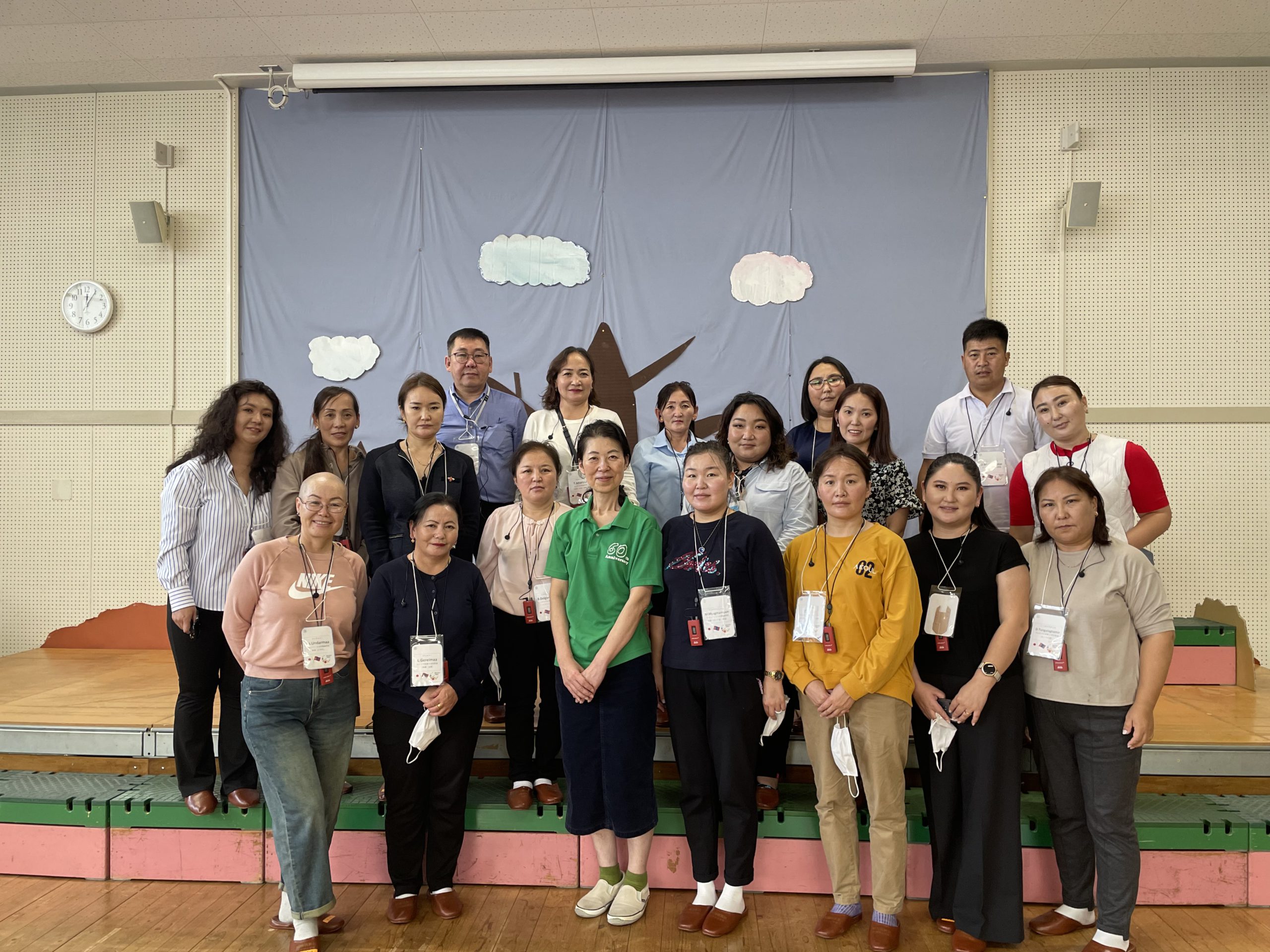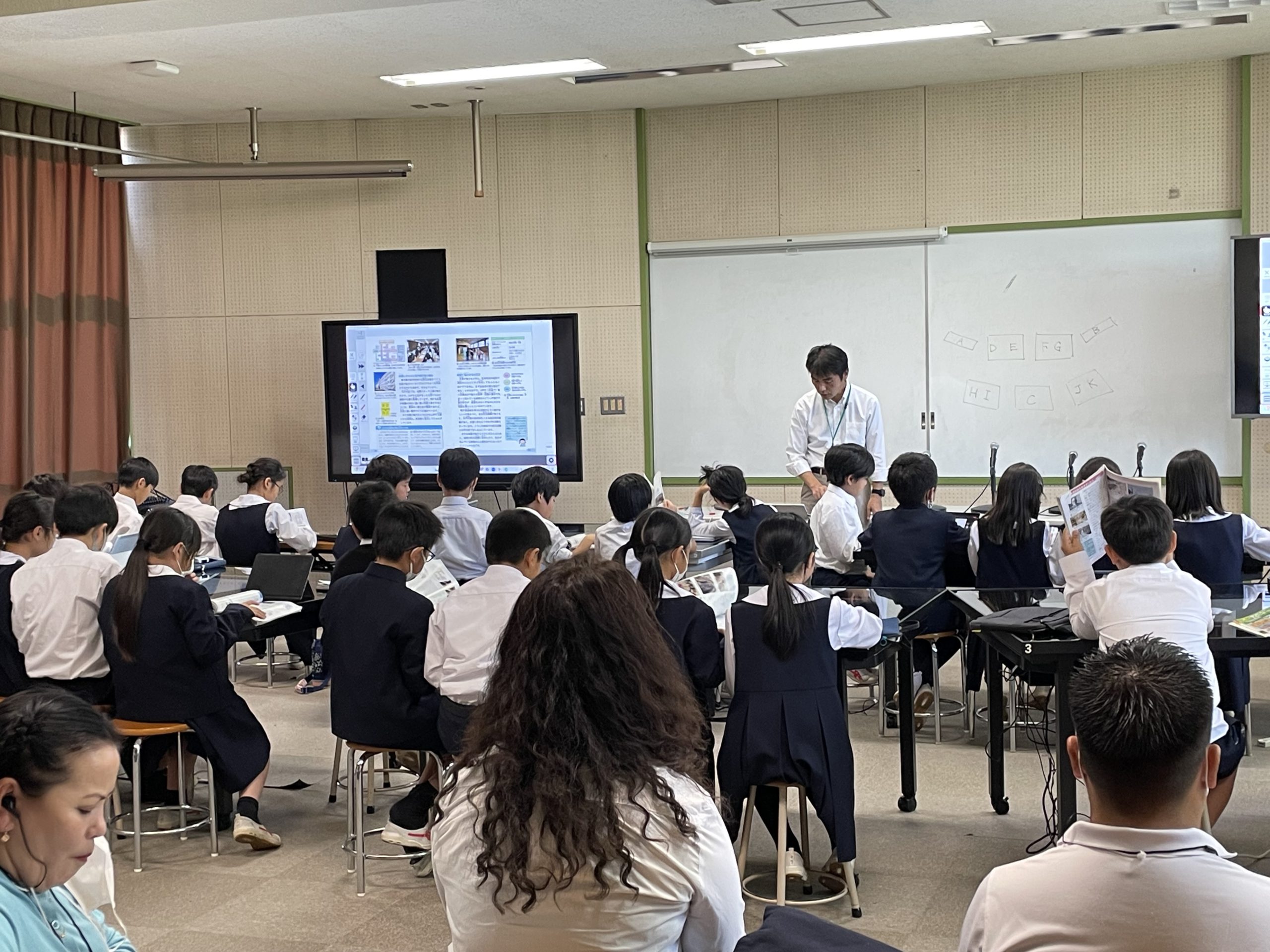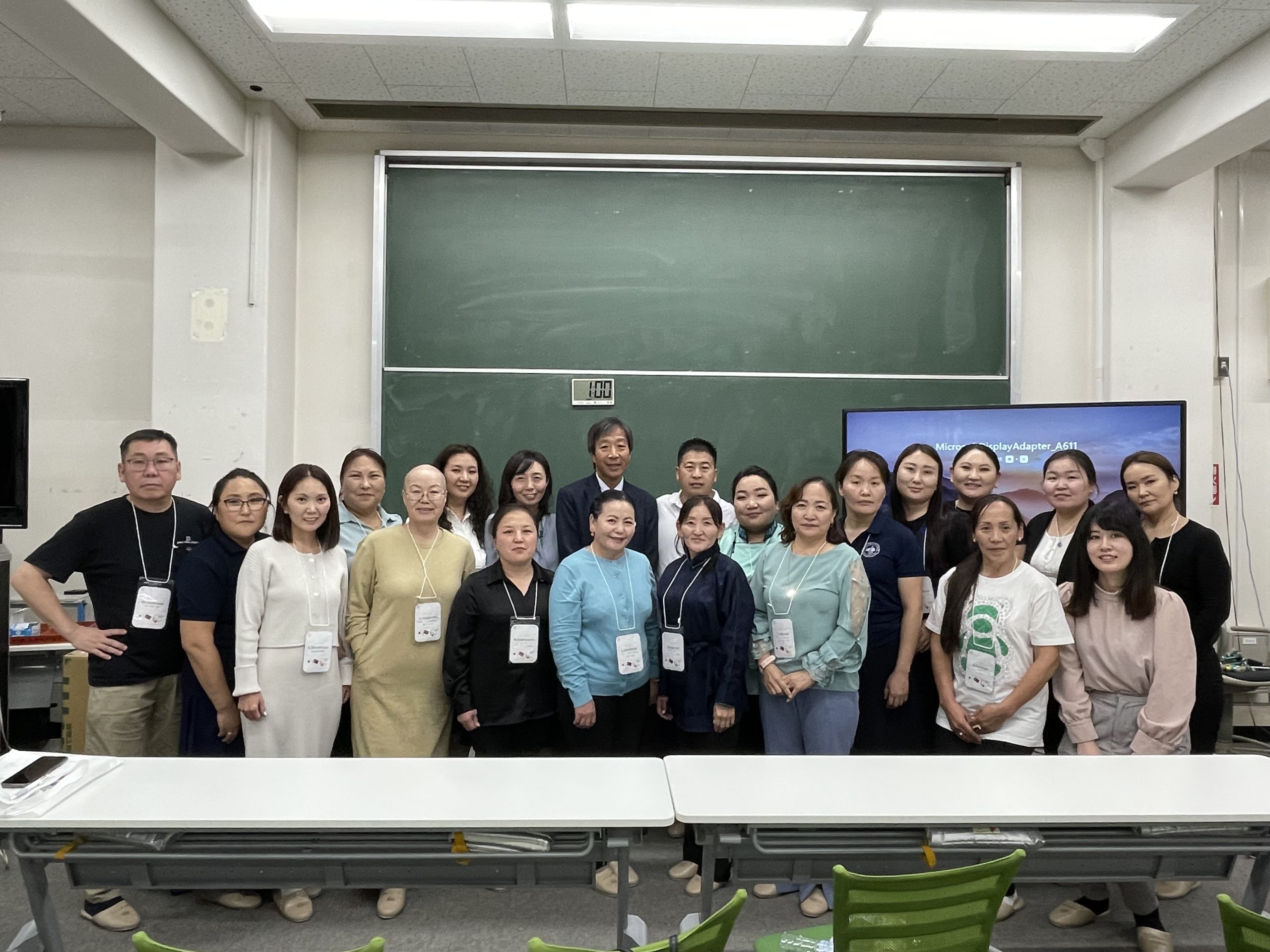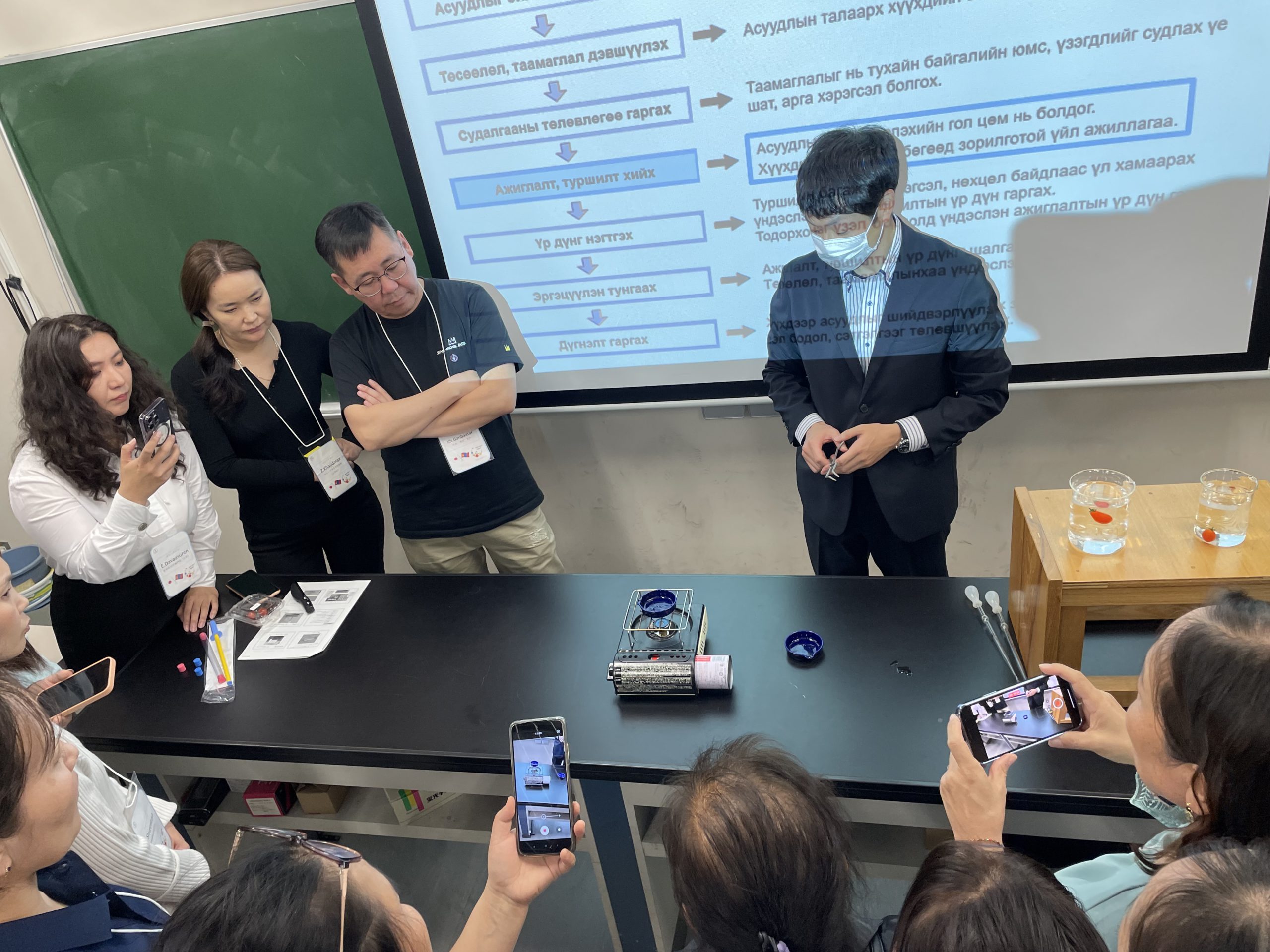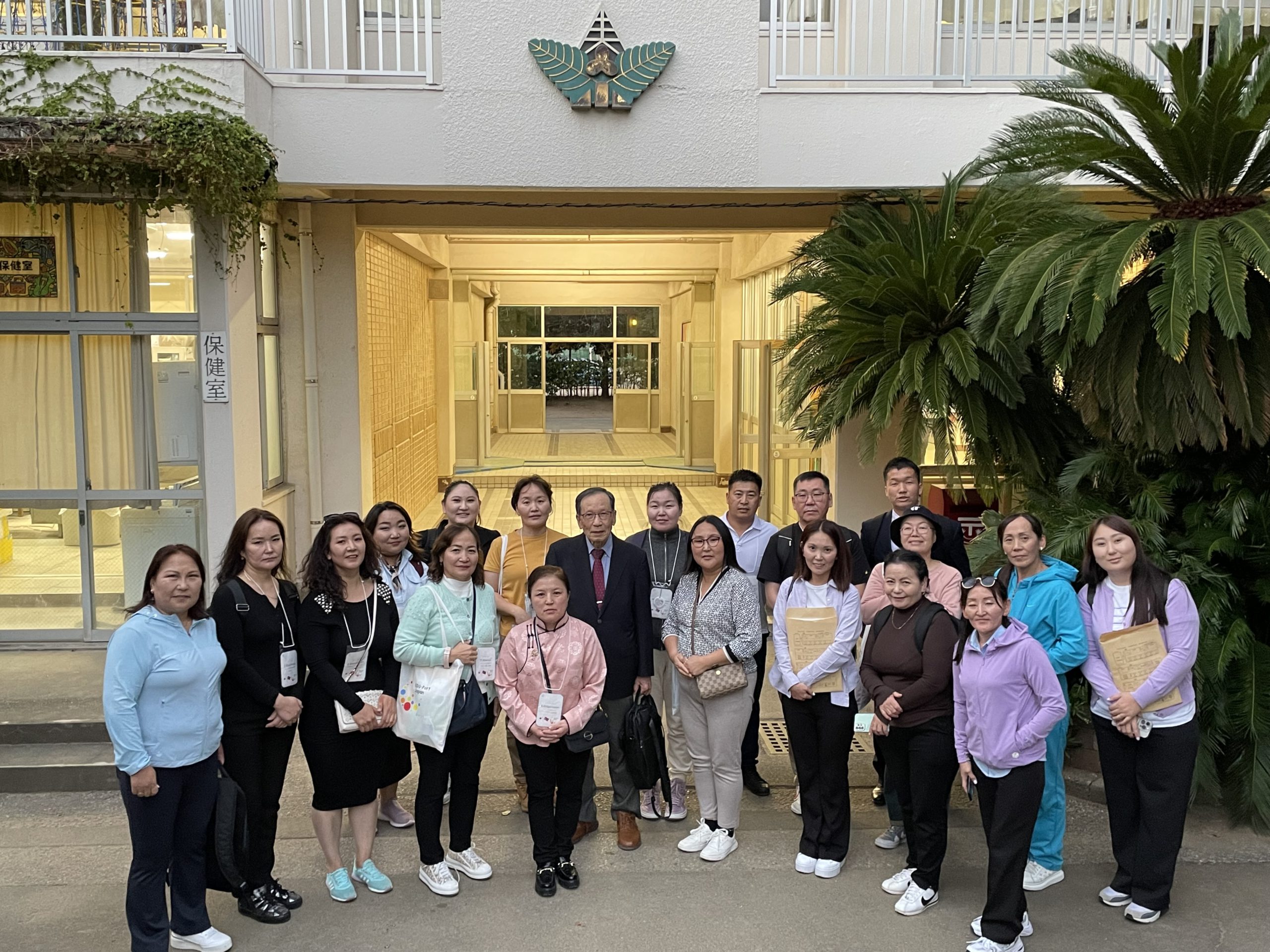From 2006 to 2013, the Japan International Cooperation Agency (JICA) implemented technical cooperation projects in Mongolia called the Teaching Methods Improvement Project towards Children’s Development and the Project for Strengthening Systems for Improving and Disseminating Child-Centered Teaching Methods. The NGO Mongolian Association of Lesson Study (MALS) was established by Mongolian stakeholders with the aim of working to improve teaching methods and achieve child-centered teaching even after the project ended.
MALS organized study tour of Japan from November 6th to 10th, 2023 with a total of 18 participants, including experts from the General Agency for Education and local Departments of Education and Science, and school teachers. As part of the School Visit program which supports visits to schools in Japan by overseas educators, EDU-Port Japan coordinated the study tour, including school visits, and accompanied the participants.
On the first day of the tour, following a review of the goals of the study tour with Professor Akiteru Fukuchi of Tokyo Gakugei University, the participants visited the Science Museum in Chiyoda Ward.
On the morning of the next day, the 7th, they visited Koganei Kindergarten affiliated with Tokyo Gakugei University where they were shown around by the vice principal Yukiko Yamada and observed how children learn through play, which is a feature of early childhood education in Japan, and how the environment is created. In the afternoon, they visited Koganei Junior High School where they observed classes and toured the school’s facilities, and heard from the principal Kenichi Sakaguchi and vice principal Jun Murakami about the role played by university affiliated schools in teacher training and educational research.
On November 8th, at Koganei Elementary School, the group learned about the school’s distinctive education approach, including learning by doing, from the principal Shinichi Komori, before observing a 4th grade social studies lesson taught by Hideki Suzuki. Afterwards, Professor Yoshihiro Sekita from the Affiliated School Administration Department and the school nurse Makiko Sato talked about creating a safe and comfortable place for every child and the use of ICT to achieve inclusive education. Associate Professor Masafumi Watanabe of Tokyo Gakugei University also gave a talk on science lesson study and teaching materials study, including experiments.
On November 9th, the group participated in an open lesson study at Mihana Elementary School in Narashino City titled “Arithmetic learning where children proactively learn from each other: Toward a place for substantial comparative studies.”
On the last day of the tour, the participants held a review session in which they shared what they had learned.
- I was impressed by the fact that in Japanese schools they set concrete and achievable goals closely related to society and daily life, and everyone works together to achieve these goals, with the focus on the learning by the children.
- Instead of trying to cram too much into one lesson, the teachers asked easy-to-understand questions and devised ways to help the children get a better understanding by referring to the learning materials themselves, without providing a lot of explanation.
- I learned that it is not important that the teaching materials look good, but that, no matter how simple, they suit the purpose of the lesson, and that teaching materials can be created using familiar objects.
- I realized that it is important for managers and teachers to work together as a team, understanding children’s diversity and the causes of any difficulties they have in learning or in daily life and considering how to support each child.
Comments from the participants included, “After returning to Mongolia, I am going to put the ideas that I picked up on this study tour into practice, like writing on the blackboard in different colored chalk and making handcrafted teaching materials,” and “I am going to set up a support center for new teachers in my region while referring to the study activities carried out in Japanese schools.”

